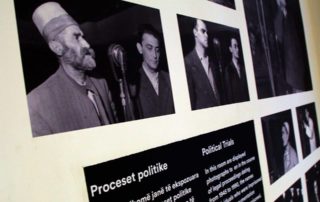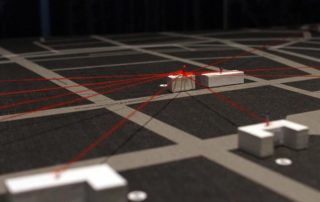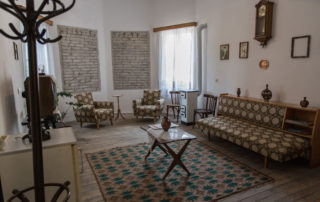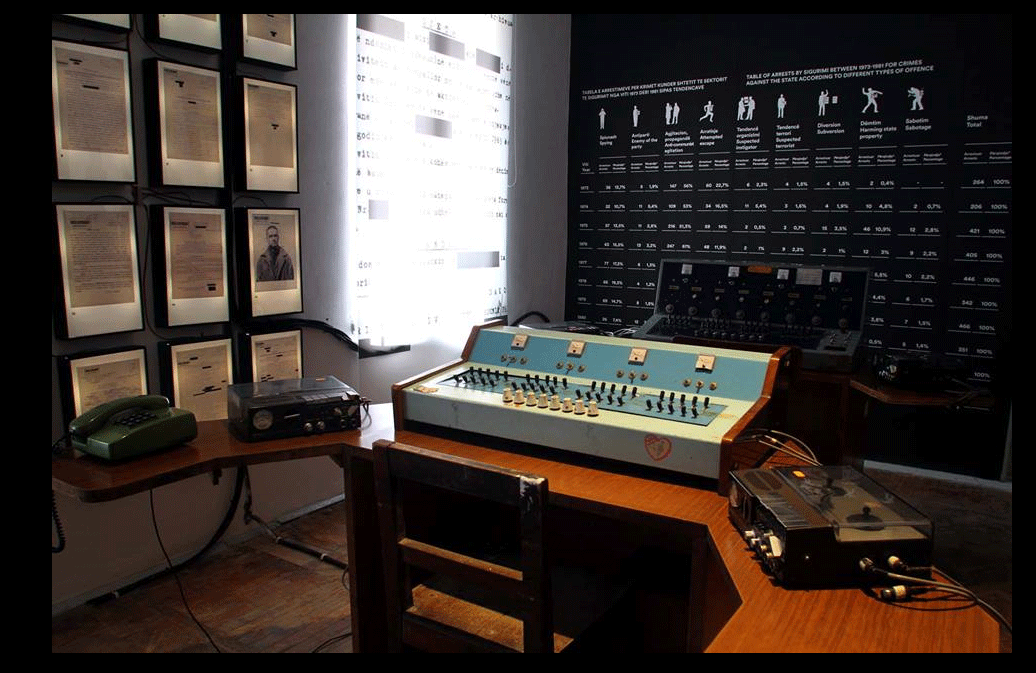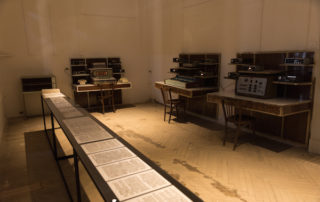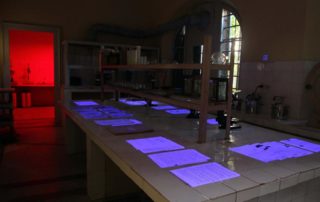Sector 03: What is the enemy?
Perception of enemy determines the control and repression manners. Conversely, these ways reinforce the perception on the enemy. The vicious circle of totalitarian dynamics. In the rooms of this sector, visitors will get acquainted with some of the most sensational trials during communist dictatorships accompanied by photos of these court proceedings. One of the rooms is dedicated to the long list of innocent people who were imprisoned or executed for political [...]
Sector 04: The external enemy
Interception of foreigners constituted essentially an extension of control and repression within the country. A feature of the communist dictatorship in Albania was the ever-complete self-isolation from the world, by proclaiming Albania as the only socialist country in the world, which was under siege and comprised the target of the two superpowers and their blocks: the entire world against a small country. At the same time, in the totalitarian mentality of the time, [...]
Sector 05: Intermezzo
Private life under the communist regime was completely unprotected from State intervention, because the ideology had a collectivist character and the party-State was omnipotent. With regard to the family, the state played the role of the patriarch, who should know everything and decide everything. Secret interception via microphones was just one of the ways in which the State penetrated every home, capturing intimate conversations whenever and how often it wanted. When an individual [...]
Sector 06: Every day life
Surveillance was used for all social strata and categories, because none of them was immune from persecution; a priority was that class or category that was considered as potentially dangerous at a given moment. A word, a song, a casual meeting could quite well be considered hostile activity. A telephone interception list is shown. This list was taken from the archive of the Ministry of Internal Affair. Tirana of the 70's had about [...]
Sector 07: Voices of the past
These are voices captured by electronic interception decades ago. But they cannot be a curiosity object. They come from the darkness, from the abyss. Regardless of their words, they are voices that invite for a reflection on the past. The transcription model of an interception made by State Security employees is shown in one of the rooms.
Sector 08 : Panopticon – Panakustikon
It can be translated as “the place from where you can see and hear everything”. The other meaning of the first word, according to which the second was built is that of an ideal prison, conceived more than two hundreds years ago by the utilitarian philosopher Jeremy Bentham. The Utilitarian did not believe in the utopia of a perfect society. Communism was such a utopia. The claims to realize it brought society to [...]




